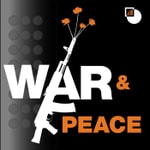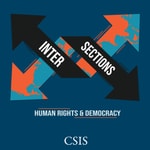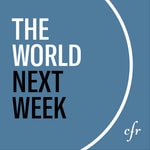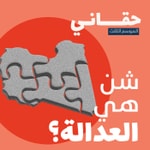The Horn – Détails, épisodes et analyse
Détails du podcast
Informations techniques et générales issues du flux RSS du podcast.
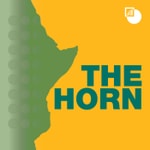

Hosted on Acast. See acast.com/privacy for more information.
Classements récents
Dernières positions dans les classements Apple Podcasts et Spotify.
Apple Podcasts
🇩🇪 Allemagne - newsCommentary
10/08/2025#43🇬🇧 Grande Bretagne - newsCommentary
08/08/2025#72🇬🇧 Grande Bretagne - newsCommentary
07/08/2025#94🇬🇧 Grande Bretagne - newsCommentary
01/08/2025#71🇨🇦 Canada - newsCommentary
31/07/2025#98🇬🇧 Grande Bretagne - newsCommentary
31/07/2025#56🇬🇧 Grande Bretagne - newsCommentary
30/07/2025#65🇬🇧 Grande Bretagne - newsCommentary
29/07/2025#61🇫🇷 France - newsCommentary
29/07/2025#94🇬🇧 Grande Bretagne - newsCommentary
28/07/2025#70
Spotify
Aucun classement récent disponible
Liens partagés entre épisodes et podcasts
Liens présents dans les descriptions d'épisodes et autres podcasts les utilisant également.
See allQualité et score du flux RSS
Évaluation technique de la qualité et de la structure du flux RSS.
See allScore global : 59%
Historique des publications
Répartition mensuelle des publications d'épisodes au fil des années.
Somalia amid a Swirl of Regional Tensions
Saison 6 · Épisode 1
jeudi 19 septembre 2024 • Durée 39:54
In the first episode of The Horn’s new season, Alan is joined by Crisis Group’s senior Eastern Africa analyst Omar Mahmood to discuss the escalating regional tensions involving Somalia, Egypt and Ethiopia, the uncertain future of the stabilisation mission ATMIS, which supports Mogadishu in its fight against Al-Shabaab and the presence of the Islamic State in Somalia. They unpack the worsening relations between Mogadishu and Addis Ababa over Ethiopia’s bid for sea access through Somaliland and the diplomatic efforts under way to defuse the tensions. They discuss Somalia’s new defence pact with Egypt and its regional implications. They talk about a possible follow-on mission to ATMIS, which is set to end by December this year, Ethiopia’s military presence in Somalia and Egypt’s increasing security assistance to the country amid regional rivalries. They also discuss the growing significance of the Somali branch of the Islamic State for the group’s global operations, recent developments in Mogadishu’s fight against Al-Shabaab and whether more diplomacy could help to improve relations between Somalia and its neighbours.
For more on the topics discussed in this episode check out our recent briefing, The Islamic State in Somalia: Responding to an Evolving Threat and our Somalia country page.
Hosted on Acast. See acast.com/privacy for more information.
Kenya and the Future of Protests
Saison 5 · Épisode 18
vendredi 12 juillet 2024 • Durée 36:39
In this episode of The Horn, Alan talks with writer and political analyst Nanjala Nyabola about the wave of nationwide protests that have swept through Kenya in recent weeks and prospects for the country and the region. They unpack the political and economic factors driving discontent among young people in Kenya, the makeup of the demonstrators and social media’s role in galvanising the protests. They discuss what options Kenya’s President William Ruto has to address the country’s economic woes and its spiralling debt crisis. They also talk about whether demonstrations might spread to other African countries facing structural challenges similar to Kenya’s and what lessons can be learned from how protest movements have played out in Sudan and elsewhere in the region.
For more, check out Nanjala’s article in The Guardian The world is scrambling to understand Kenya’s historic protests – this is what too many are missing, her book Digital Democracy, Analogue Politics: How the Internet Era is Transforming Politics in Kenya and our recent Q&A What is Behind Kenya’s Protest Movement?
Hosted on Acast. See acast.com/privacy for more information.
Kenya and the Chaos in Haiti
Saison 5 · Épisode 11
jeudi 7 mars 2024 • Durée 39:36
In this episode of The Horn, Alan talks to Diego Da Rin, Crisis Group’s Haiti expert, and Murithi Mutiga, Crisis Group’s Africa Director, about the latest surge in gang violence in Haiti, which has put the state on the brink of collapse, and the potential of an international mission led by Kenya to restore security. They talk about the deep crisis in Haiti and why gangs in the country are trying to overthrow Prime Minister Ariel Henry’s government. They talk about Henry’s visit to Kenya, what’s behind Nairobi’s decision to lead an international mission to Haiti and why it has faced opposition in Kenya’s courts. They assess the political risks involved for Nairobi in sending police forces to Haiti and how gangs in the country might react to such a deployment. They also discuss fast-moving events, whether Henry is now stranded abroad, and whether a foreign deployment still looks feasible.
For more in-depth analysis of the topics discussed in this episode, check out our briefing Haiti’s Gangs: Can a Foreign Mission Break Their Stranglehold? and our Haiti country page
Hosted on Acast. See acast.com/privacy for more information.
A Rare Glimpse into Darfur’s Last Rebel Stronghold
Saison 2 · Épisode 2
mardi 22 septembre 2020 • Durée 26:05
Sudan’s 31 August peace deal between the government and an alliance of rebel groups from Darfur, South Kordofan, and Blue Nile was welcomed with enthusiasm by the international community. But in the Jebel Marra mountains of Darfur, controlled by a faction of the Sudanese Liberation Movement (SLM), a rebel group that refused to sign the agreement, it was met with raised eyebrows.
In early 2020, Vice News correspondent Julia Steers became the first foreign journalist to set foot in the Jebel Marra in five years. She witnessed first-hand why mistrust toward the government flies high in this remote area traumatised by seventeen years of war, even after former President Omar al-Bashir’s ousting in 2019.
Steers explains how the rebels want justice for the crimes committed in Darfur and a significant improvement of the situation on the ground, where gunshots ring out daily and humanitarian services are absent. High on their list of concerns is also the fact that the process that led to the August agreement involves a general they consider as one of the masterminds of the genocide committed against them.
Elsewhere in Darfur, Steers notes, challenges standing in the way of peace also abound. One obstacle is a surge in what the United Nations calls “tribal clashes”, where civilians displaced by the conflict are attacked in and outside the camps they live in.
Explore our Sudan page to learn more about Crisis Group’s analysis on the country: https://www.crisisgroup.org/africa/horn-africa/sudan
To watch Vice News’ feature “Inside the Forgotten War in Darfur, Where the Killing Never Stopped”: https://www.youtube.com/watch?v=_NlgaXrMTc4
Hosted on Acast. See acast.com/privacy for more information.
Peace and Conflict in Africa, Then and Now
Saison 2 · Épisode 1
mardi 8 septembre 2020 • Durée 30:48
To mark the first episode of season two of The Horn, Alan talks with Crisis Group’s Africa Program Director Comfort Ero about how the politics of conflict and peacemaking have changed — and not changed — across the African continent during the decade that she has led the organisation’s work on Africa.
She highlights that although headlines may be dominated by topics such as “jihadist threat” and “violent extremism”, the key causes of conflict remain the same, namely corruption, instrumentalisation of ethnicity, and marginalisation of certain communities.
They discuss power struggles in the Horn of Africa as America’s primacy wanes, the African Union’s more assertive role in peace and security, and how African leaders should manage their relationships with China to strengthen conflict resolution on the continent, not repressive authoritarian regimes. They also explore the benefits and risks of talking about African solutions to African problems, and the need to take into account the crucial national interests that can drive a state to try to shape the future of a neighboring country.
Hosted on Acast. See acast.com/privacy for more information.
Replay: Rashid Abdi
dimanche 9 août 2020 • Durée 31:17
In our second re-run of the Summer, Alan is joined by Rashid Abdi to discuss the legal battle Kenya and Somalia are fighting over their shared maritime border.
Somalia’s President Mohammed Abdullahi "Farmajo" has taken a more assertive stance to demonstrate the country’s strength and appeal to his support base. Kenya views itself as a powerful country in a turbulent region and doesn’t wish to be seen caving into pressure.
Rashid and Alan seek insights about why the dispute flared up, Ethiopia’s changing role under Prime Minister Abiy Ahmed, and how mediation efforts have achieved some positive, modest success in de-escalating tensions.
Hosted on Acast. See acast.com/privacy for more information.
Replay: Nanjala Nyabola
lundi 20 juillet 2020 • Durée 26:42
During our season break, we will be re-running two early podcasts from our first season that new subscribers might have missed. We will be back in September with some brand new episodes.
Digital technologies are having a dramatic impact on politics. But while their influence in Western political spaces has been heavily scrutinized, little attention has been paid in Africa. Best-selling Kenyan author Nanjala Nyabola joins Alan Boswell on The Horn this week. They discuss everything from digital colonialism and the exploitation of technology by state powers to the power of social media, for better or for worse.
Hosted on Acast. See acast.com/privacy for more information.
Somali Politics Heat up, Again
Saison 1 · Épisode 22
lundi 6 juillet 2020 • Durée 30:59
Somalia's political crisis has reached a worrying stage. Since his election in 2017, President Farmajo has pushed to strengthen the federal government's control, fuelling infighting between the government and member states. The decision to postpone upcoming elections has inflamed these already deteriorating relations.
Meanwhile, Al-Shabaab continues to inflict violence and will likely benefit from this political disarray, and external actors compete for influence, using the country as a playground for their own interests.
Crisis Group's Senior Analyst for Somalia Omar Mahmood joins Alan for the final episode of this season to discuss these worrying trends and the need for a consensus agreement over the electoral process. They also examine the skirmishes in Jubaland's Gedo region and their impact on wider regional dynamics.
Thank you for joining us for this first season of the Horn. We would love to hear from you so if you have a few minutes to spare, please fill out this short survey: https://bit.ly/HornSurvey
We will be back in September. Until then, stay safe!
Hosted on Acast. See acast.com/privacy for more information.
As Rains Begin, Crisis Looms over the Nile Dam
Saison 1 · Épisode 21
lundi 22 juin 2020 • Durée 35:18
As rains swell the Blue Nile, Ethiopia has made clear its intent to soon start filling the massive dam it is building. However, it has yet to reach an agreement with its two downstream neighbours, Sudan, and Egypt.
Trilateral talks resumed in early June, and while most elements have been agreed upon, two key issues remain unresolved: drought mitigation and dispute resolution. The gap to reach an agreement is closing fast.
William Davison, Crisis Group's Senior Analyst for Ethiopia, returns to The Horn once more to unpack the complex dynamics at play. He and Alan discuss negotiations, technical issues, and the parties' various concerns. He stresses that all three need to compromise if they hope to reach a deal, lest tensions rise further.
For more information, read our statement: Nile Dam Talks: A Short Window to Embrace Compromise
Hosted on Acast. See acast.com/privacy for more information.
Africa and the Emerging US-China Cold War
Saison 1 · Épisode 20
lundi 8 juin 2020 • Durée 32:26
The "age-old story of the rise and fall of great powers", already in motion, has been accelerated by the COVID-19 pandemic.
So says Abdul Mohammed, chief of staff and senior political advisor for the African Union High-Level Implementation Panel. Amid waning U.S. influence, the steady rise of China, and a new era of competition between the two, he asks, where does Africa fit in?
The continent has undergone a dynamic transformation over the past twenty years. In the absence of robust, long-term U.S. engagement, China has emerged as the continent's most important economic partner. Meanwhile, the U.S. is now primarily focused on sidelining China in Africa rather than providing the transformative engagement needed.
With the continent now caught between these two opposing geopolitical forces, just like the rest of the world, Abdul argues that Africans cannot afford to be passive. They will need to "play a weak hand well" by positioning themselves as relevant actors, both in managing the current pandemic and in contributing to the shaping of a future global order.
Hosted on Acast. See acast.com/privacy for more information.


